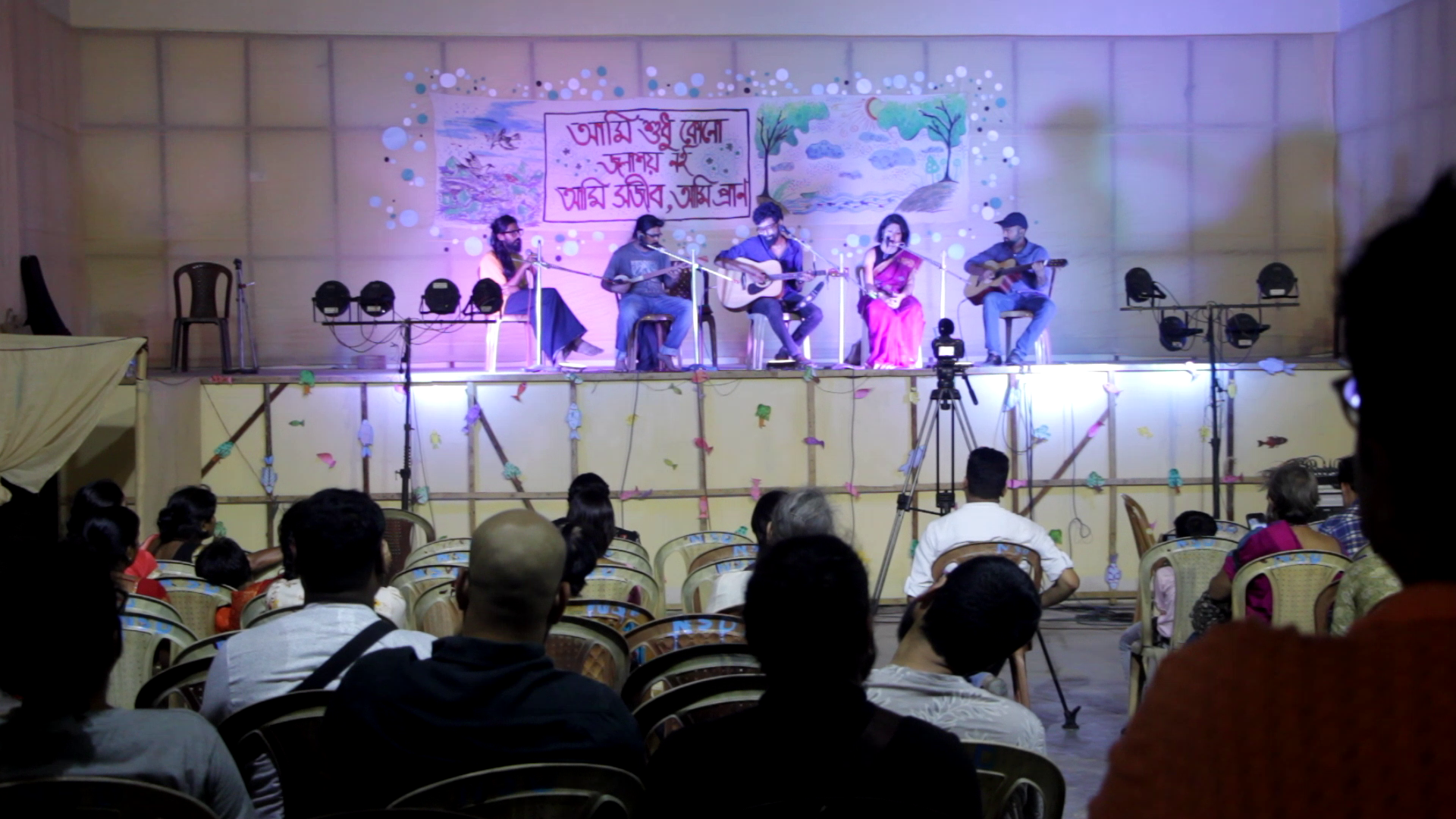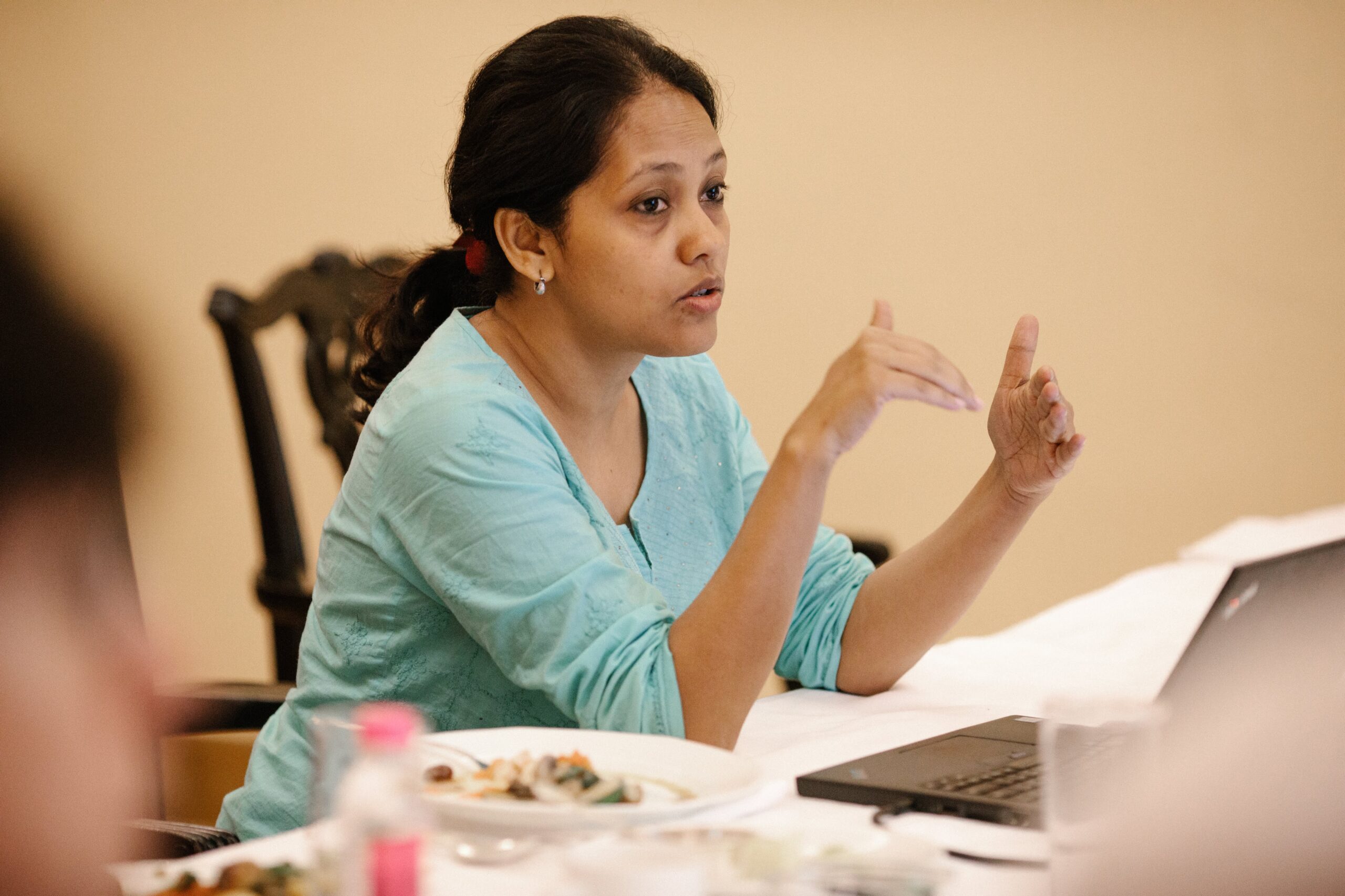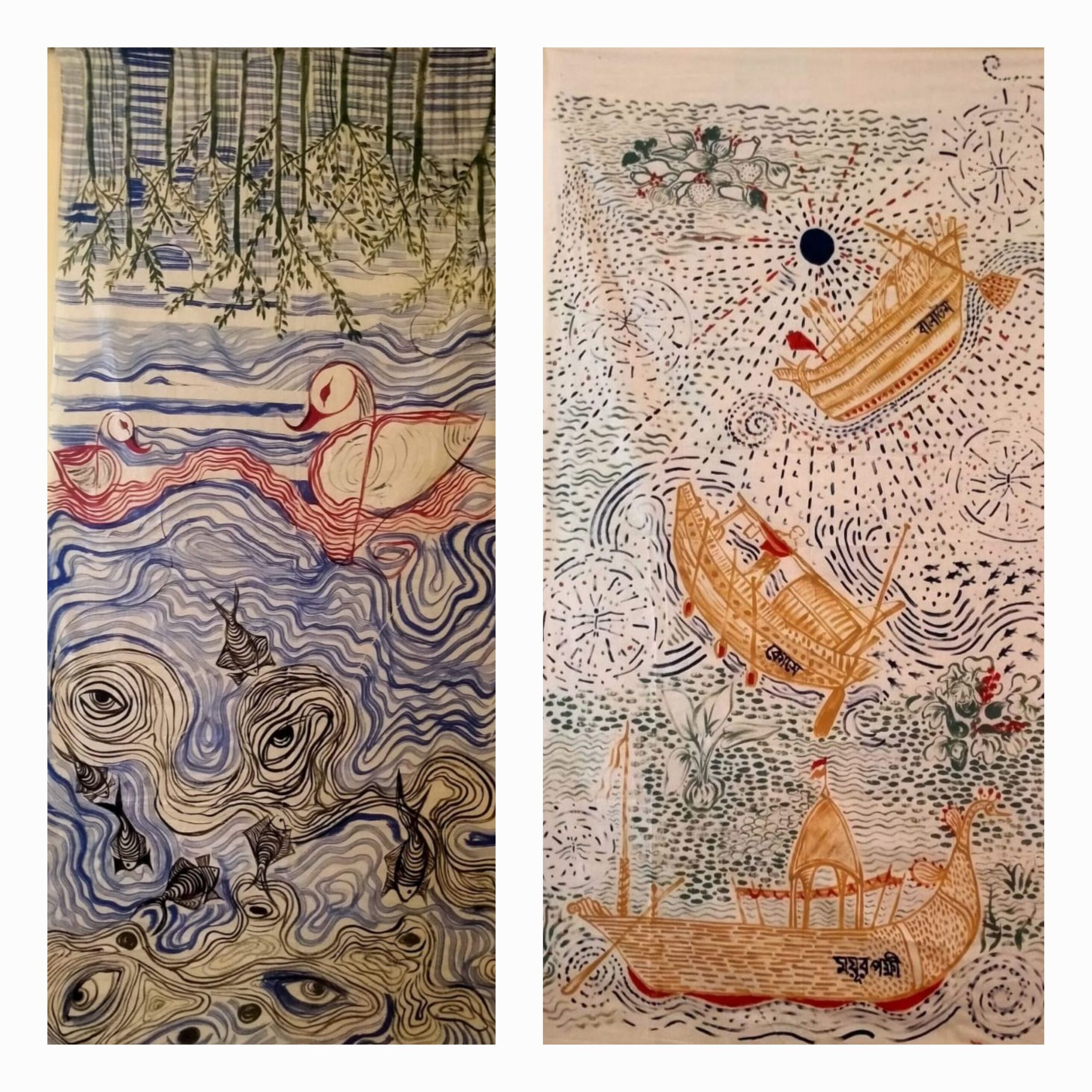
When the climate crisis is at your doorstep, the need for change is now. But that’s an enormous task for the socially and economically marginalized communities who climate change disproportionately impacts.
In Kolkata, India, this challenge can be seen in communities’ struggle for one of their basic human rights: clean water. Kolkata, home to over 15 million people, is built on wetlands and the eastern bank of the Hooghly River. Vulnerable groups, including women, migrants and ethnic minorities, and those living in poverty rely on local waterways to fish, bathe, and cook. But decades of industrial waste, poor sanitation, and dumped garbage have polluted the water and impacted communities’ access.
In 2019, a group of researchers, community leaders, artists, writers, and performers came together to address the city’s environmental problems through art. Calling themselves Jaladarsha Collective (meaning “water’s reflection” in Sanskrit), the artists and activists aimed to create spaces and platforms where Kolkata’s marginalized people could share their experiences and solutions to environmental issues. As part of our growing work on climate justice, the Fund for Global Human Rights supported their community-led efforts—including the launch of a new arts festival for Earth Day in April 2023.

“There were groups looking at the environment about planting trees or using electric cars, but they didn’t look at how consumption and climate are impacting marginalized communities,” says Sayantoni Datta (above), who leads the collective. The Fund’s support has helped them take steps to start filling that critical gap.
The group developed surveys to assess different neighborhoods’ environmental concerns along the city’s eastern waterways. They then compared results with data around demographics and other human rights concerns, such as violence and discrimination. They found that women, LGBTQ+ people, and migrants who moved to Kolkata after floods and cyclones destroyed their land were being particularly impacted by the lack of access to clean water.
These findings served as the basis for in-depth community discussions and the manual clean up of three ponds used for fishing. The festival spotlighted this work, along with dance performances, paintings, and art installations that explored the vital role of water. Hundreds flocked to the festival to experience the art as well as learn from conversations with environmentalists, fisher folk, and women’s groups about the need for clean water. The event also drew attention from the media and several local commissioners.

The festival had an immediate impact. Many young people have already volunteered to help clean more waterways. Legal advocates and other groups have reached out, looking to strengthen community rights and preserve local water bodies. And local government has since made several commitments to clean the waterways.
“If you look at water and see the situation of water in the city, it gives you a reflection of how things are in the environment,” says Sayantoni. She and Jaladarsha Collective are determined to bring communities together to ensure Kolkata’s waterways can once again be a source of life.


